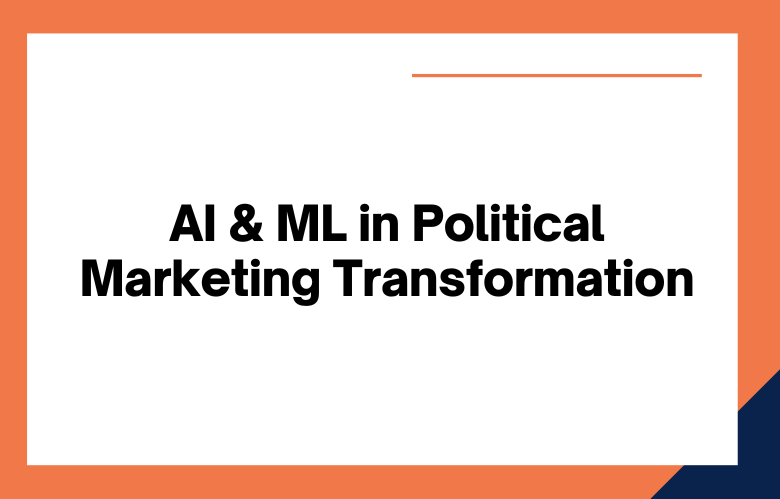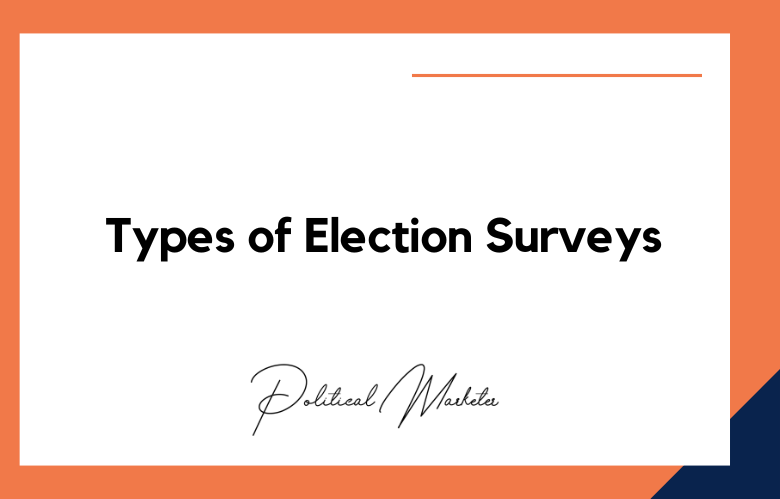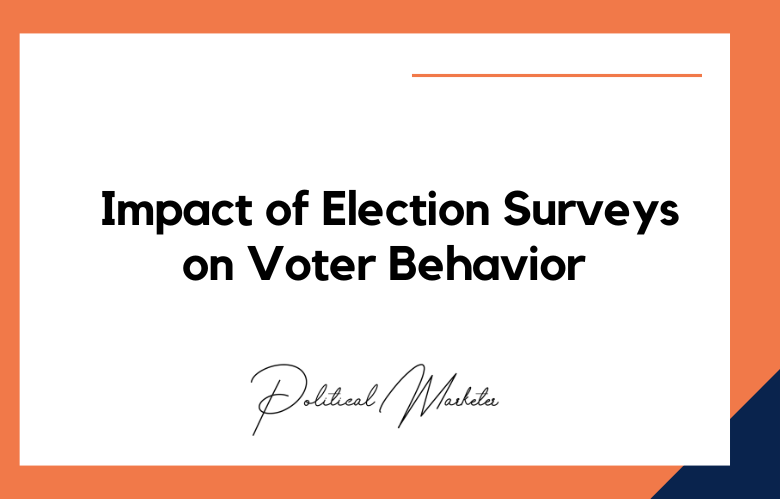It is no secret that artificial intelligence (AI) and machine learning (ML) are transforming industries worldwide. The political marketing landscape is no exception, with AI and ML used to target voters, analyze data, and craft campaigns.
We will explore the role of AI and ML in political marketing transformation.
We discuss how these technologies are helping campaigns achieve their goals and the benefits and challenges of using them. Stay tuned for an insightful look at the future of political marketing!
As technology continues to evolve, so does the way political campaigns run. Artificial intelligence (AI) and machine learning (ML) are two technologies starting to play a significant role in political marketing transformation.
Some people might wonder what these technologies play and how they can help transform a political campaign. We will discuss the role of AI and ML in political marketing transformation and explain how they can help campaigns achieve their goals.
The benefits of using AI in Political Marketing
- AI can help target potential voters more accurately
- AI can help create personalized content for each voter
- AI can automate the process of contacting voters
- AI can help analyze political data to understand public opinion better
- AI can help improve the campaign strategy
- AI can help target potential voters more efficiently
- AI can help create marketing content that is more relevant to voters
- AI can help track and analyze voter sentiment
- AI can help identify areas where a campaign needs improvement
- AI can automate specific tasks, such as data entry and analysis
- Political campaigns can use AI to target specific voters based on their data
- AI-generated content creates more persuasive campaign ads
- AI can help campaigns track voter engagement in real time
- AI-powered analytics can help identify which issues are most important to voters
- Automated bots manage social media accounts and respond to voter queries
- AI predictS election outcomes
- AI can help target potential voters more accurately
- AI can help create personalized content for each voter
- AI can automate the process of contacting potential voters
- AI can analyze voting patterns to understand better how to campaign
- AI can keep track of a candidate’s progress and adjust strategies accordingly
- AI can help target potential voters more effectively
- AI can analyze data to understand voter behavior better
- AI can create customized marketing content for each voter
- AI-generated content is more likely to be shared on social media
- AI can track the success of marketing campaigns in real-time
- AI can help political parties respond more quickly to changing public opinion
- AI will become increasingly important in future elections
- AI can target specific demographics with precision
- AI can personalize content for each voter
- AI can automate the process of contacting voters
- AI can analyze data to identify trends and insights
- AI can improve communication with voters
- AI can help campaigns keep track of their progress
- AI can help target specific voters with relevant messages based on their voting history
- AI can help create custom content for ads and social media posts
- AI can help track the success of campaigns in real-time and make changes as needed
- AI can help identify potential donors and volunteers
- AI can automate routine tasks, freeing up time for campaign workers to focus on more important things
- AI can keep track of all the data associated with a political campaign, from voter contact info to donation amounts
- AI-generated insights can help politicians better understand public opinion
- AI can help identify voters’ political leanings
- AI can target potential voters with personalized content
- AI can help increase voter turnout
- AI can analyze campaign data to improve future campaigns
- AI can help target potential voters more efficiently
- AI can help create more personalized marketing materials
- AI can automate the process of analyzing data to find trends
- AI can help identify supporters and donors
- AI can help improve communication with voters
- AI can monitor feedback and reactions to campaigns in real time
- AI can help optimize campaigns as they progress
- AI can target potential voters more accurately than traditional marketing methods
- AI can help campaigns better understand voter sentiment
- AI can automate tasks such as data entry and analysis
- AI-generated content is more likely to go viral on social media
- AI can help campaigns keep track of their opponent’s moves
- AI can improve communication with voters
- AI-powered chatbots can answer voter questions in real time
- AI can help campaigns optimize their spending
How will AI change the future of Political Marketing
It is difficult to predict how artificial intelligence (AI) will change the future of political marketing. However, AI may revolutionize the field by providing new and innovative ways to connect with potential voters. For example, AI creates personalized messages tailored to voters’ needs and interests. Additionally, AI targets specific demographics with targeted advertising. AI could help political campaigns to understand better and reach potential voters, which could result in more successful campaigns.
In the future, AI will change the landscape of political marketing. With the capacity to target specific demographics and analyze data, campaigns will become more efficient and focused. However, there is a potential downside to this hyper-targeting. If misused, AI could exacerbate tribalism and division. Political marketers must avoid creating wedge issues that further polarize the electorate.
The future of political marketing is shrouded in possibility. With AI playing an increasingly integral role, anything could happen. Some experts believe AI will primarily benefit political campaigns, providing them with invaluable data and insights. Others are more skeptical, worried that the same technology manipulates and controls the electorate. No one can say for sure what the future holds, but one thing is certain: AI will change the face of political marketing forever.
- Artificial intelligence changes the landscape of political marketing completely.
- Political campaigns could become more data-driven and focused on micro-targeting voters.
- AI could create more personalized campaign messages and improve overall outreach efforts.
- In some cases, AI might even predict how likely a person is to vote for a particular candidate.
- While it’s impossible to know exactly how AI will change political marketing in the future, it’s clear that the technology will have a significant impact.
Challenges faced while implementing AI and ML in Political Marketing
- Lack of data: There is a lack of data for political marketing purposes. Most of the available data is either outdated or not specific enough. Political campaigns are often secretive and do not publicly share such data. Political campaigns are not as transparent as commercial businesses regarding sharing data. It makes it challenging to train AI and ML models.
- Difficulty in understanding user intent: It can be difficult to understand user intent when it comes to political campaigning, as people often do not want to reveal they’re true intentions publicly.
- Human bias: There is a risk of human bias creeping into AI and ML algorithms, which could produce inaccurate results.
- Implementation challenges: Implementing AI and ML in political marketing can be challenging, as it requires significant resources and expertise.
- Limited resources: Implementing AI and ML can be expensive and requires access to powerful computers
- Lack of expertise: Not many people know how to use AI and ML, so it can be challenging to find people who can help you implement these technologies
- Fear of change: Some people are afraid that AI and ML will replace human jobs, which could lead to unemployment
- Limited resources: most political campaigns are small in size and have limited human and financial resources. It hampers their ability to implement AI and ML technologies.
- Lack of expertise: The people responsible for implementing AI and ML in political marketing often lack the necessary skills and knowledge.
- Time constraints: The election season is very hectic for political campaigns, with little time to spare for anything besides campaigning.
- Lack of data due to the secretive nature of political campaigns
- The need for human input to train AI and ML models
- The bias of algorithms towards certain types of data
- The reluctance of politicians to adopt new technologies
- The lack of qualified personnel who can work with AI and ML models
How AI and ML change the landscape of Political Marketing
AI and ML change the landscape of political marketing. They’re providing new opportunities for target voters, understanding campaign messaging, and optimizing advertising spending. AI and ML are quickly becoming indispensable tools for today’s political campaigns.
The field of political marketing is undergoing a significant transformation thanks to the advent of artificial intelligence (AI) and machine learning (ML). With these cutting-edge technologies, it is now possible to target voters with unprecedented precision and accuracy. Political campaigns can now be personalized to an individual level, using vast amounts of previously unavailable data. In other words, AI and ML are entirely changing the landscape of political marketing.
- Artificial intelligence and machine learning are changing the landscape of political marketing.
- With AI and ML, political marketers can target ads more accurately than ever.
-This new targeting capability is giving rise to a whole new breed of political campaigns that are more cost-effective and smarter than traditional campaigns.
Political marketing is an essential tool in any campaign. It allows candidates to connect with voters and communicate their message. AI and ML are changing the landscape of political marketing by providing new ways to reach voters and collect data. With AI and ML, campaigns can target specific voters, learn more about them, and craft custom messages that resonate. This data-driven approach to political marketing results in more effective campaigns and a better understanding of the electorate.
With the increase of artificial intelligence (AI) and machine learning (ML), the landscape of political marketing is undergoing a drastic transformation. These technologies are giving rise to new, more sophisticated ways of reaching and engaging voters. For example, AI creates targeted campaign ads tailored to individual voters’ interests. In contrast, ML predicts voter behavior and identifies potential swing voters. As the technologies are more ubiquitous, they are sure to impact how campaigns run in the future significantly.
Artificial intelligence (AI) and machine learning (ML) have emerged as powerful tools for political marketers in recent years. By harnessing the vast amounts of available data, AI and ML can help marketing professionals target specific voters, understand their preferences, and craft personalized messages. In short, AI and ML are changing the landscape of political marketing by making it more data-driven and targeted.
Future of AI and ML in Political Marketing Transformation
The future of AI and ML in political marketing is inspiring. Groundbreaking new technology is giving campaigners unprecedented insights into voters and the ability to target them with highly personalized messages.
It revolutionizes how campaigns run, and as technology develops, we can only imagine the possibilities that will open up.
Exciting times are ahead for the one involved in political marketing – it’s an industry that is sure to be transformed by AI and ML.
Some believe that AI and ML will play a significant role in political marketing in the future, changing the landscape of how campaigns run.
Others think AI and ML won’t have as big of an impact, integrating slowly into campaign strategies over time.
But no one can deny that AI and ML are already affecting political marketing, with some organizations using predictive analytics political to identify trends and others using recordings of politicians’ speeches to analyze their stump speeches.
The future of AI and ML in political marketing looks very promising. The two technologies revolutionize the field of political campaigning. With AI and ML, campaigns can target voters more efficiently and effectively. Additionally, these technologies can also help campaigns better understand the issues that are important to voters.
The future of political marketing lies in the hands of AI and ML. By harnessing the power of these technologies, marketers will be able to reach voters more effectively and connect with them. It results in a more efficient and effective electoral process overall.
Conclusion
The role of AI and ML in political marketing is still evolving, but these technologies will play a more significant role in the future. To stay ahead of the curve, or are just starting in political marketing, contact us for help.
Our team has years of experience using AI and ML to succeed for our clients. We can guide you through the process so that you, too, can benefit from these powerful technologies.
What is your view about the role of AI and ML in political marketing?










